"The real question is not whether machines think but whether men do." B.F. Skinner
Skinner's provocative challenge cuts to the heart of what I've been witnessing across my consultancy work. In meeting rooms from Manchester to Dubai, I've watched brilliant people think themselves into circles, following well-worn mental grooves that lead nowhere new. The pattern is always the same. Smart people gather around problems everyone agrees need solving. They bring expertise, data and good intentions. They follow logical processes and reach reasonable conclusions. And somehow, they miss the obvious – or worse, they solve entirely the wrong problem.
One good example is the relentless focus on ‘student engagement’ that dominates educational discourse. Walk into any school leadership meeting and you'll hear earnest discussions about interactive whiteboards, behaviour management and innovative pedagogies. The assumption that engagement equals learning has become so embedded that questioning it feels almost heretical. Yet when I ask headteachers to define what they mean by engagement, and whether engaged students are actually learning anything meaningful, the conversation shifts entirely.
This isn't about being contrarian. It's about recognising that our most entrenched assumptions often deserve the deepest scrutiny. The French philosopher Paul Virilio observed that "when you invent the ship, you also invent the shipwreck." Every solution contains the seeds of new problems, but we're so focused on implementation that we rarely pause to ask what we might be inadvertently creating.
The organisations that consistently outperform their peers aren't necessarily the smartest or best-resourced. They're the ones that have learned to think sideways when everyone else is thinking straight ahead. They've discovered the tangent advantage.
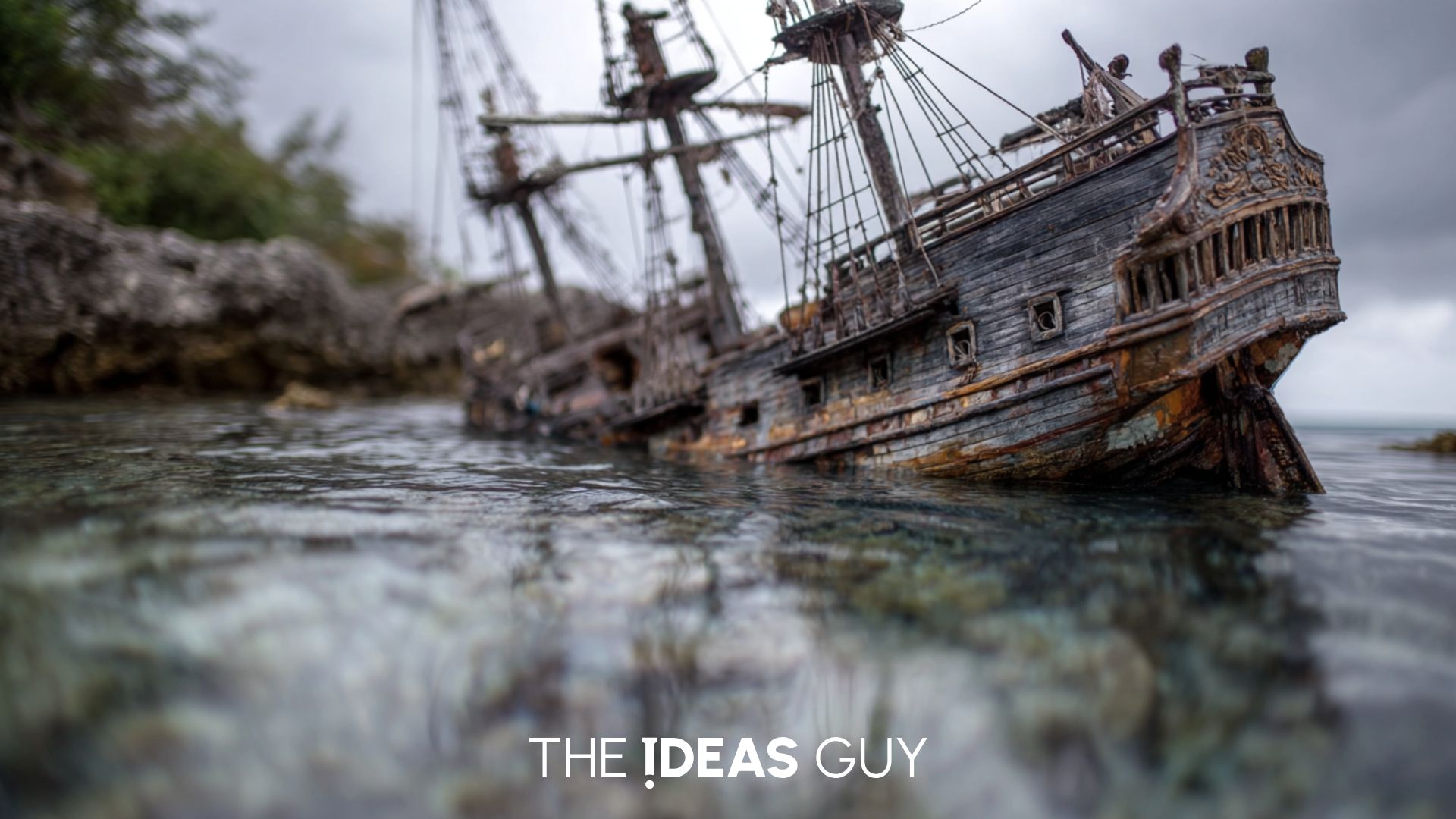
The Tyranny of the Obvious
The greatest enemy of fresh thinking isn't ignorance, it's the illusion of knowledge. When we know how things work, we stop asking why they work that way. When we've seen problems solved before, we assume we're seeing the same problems again. This cognitive autopilot serves us well in stable environments but becomes a liability when conditions change.
Arthur Koestler wrote about "bisociation" – the intersection of two incompatible frames of reference that generates creative insight. Most problem-solving follows linear paths from current state to desired outcome. But breakthrough insights come from unexpected connections between seemingly unrelated domains; what Koestler saw as the hallmark of creative thinking.
The pharmaceutical industry stumbled onto Viagra while researching heart medication. The Post-it Note emerged from a failed attempt to create super-strong adhesive. These weren't accidents; they were the result of minds prepared to notice when reality diverged from expectation. The researchers didn't dismiss anomalies as experimental errors – they recognised them as invitations to think differently.
In my work with organisations, I've noticed that the most transformative insights often emerge from the periphery, not the centre. The receptionist who notices patterns in visitor behaviour that executives miss. The teaching assistant who understands why certain students struggle in ways that qualified teachers don't see. The customer service representative who grasps market dynamics that strategic planners overlook.
These peripheral insights get filtered out by organisational hierarchies that mistake seniority for wisdom and credentials for understanding. We create systems that amplify expertise while muffling the very perspectives that might challenge our most limiting assumptions.
Questions That Change Everything
The quality of our thinking is determined by the quality of our questions. Yet most organisations are question-poor and answer-rich. We reward people for having solutions, not for surfacing better problems to solve.
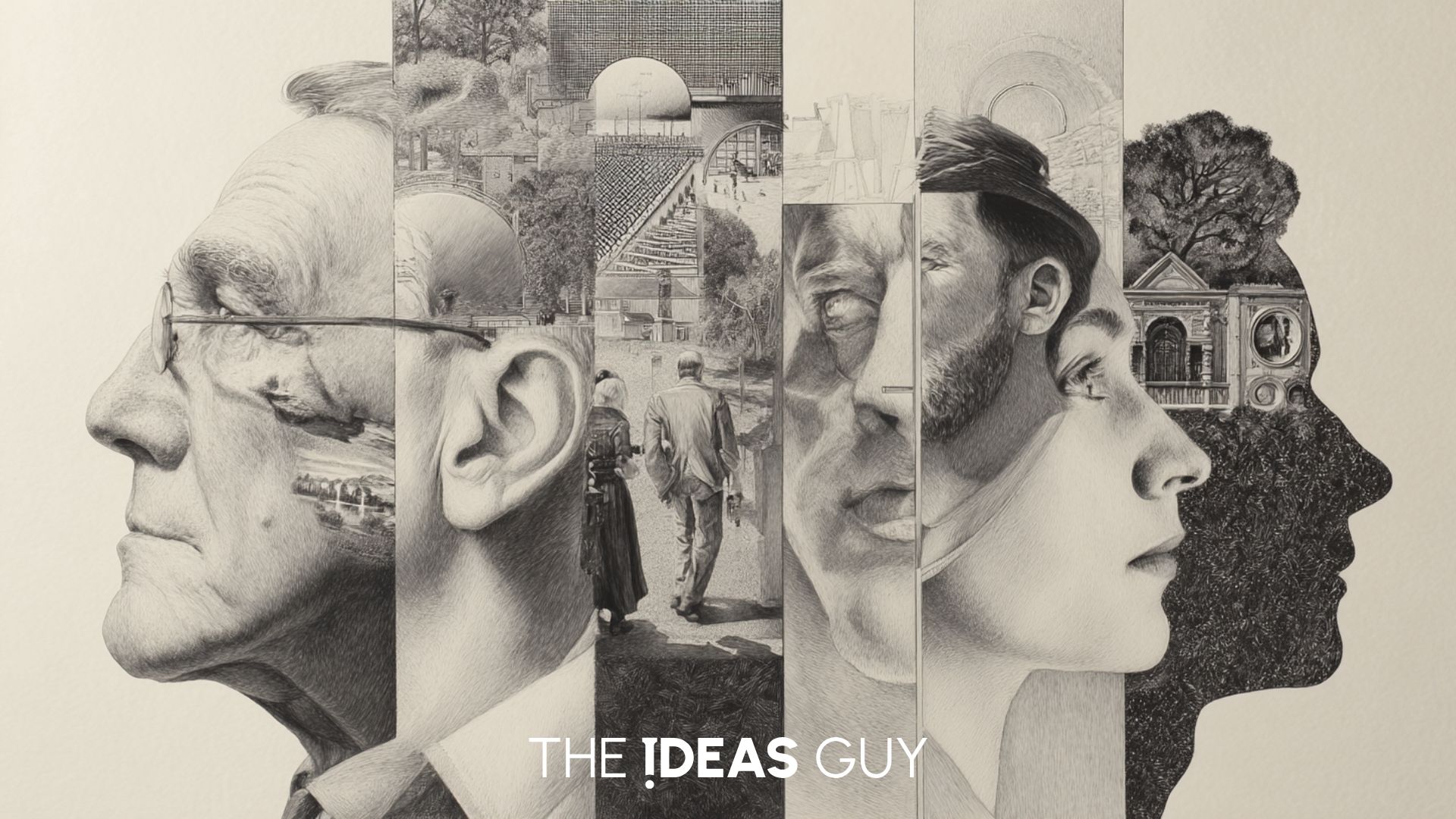
Michel Foucault spent his career demonstrating how the questions we are permitted to ask, shape the answers we are able to discover. He showed that what appears natural and inevitable is often the result of historical contingency – ways of thinking that solidified into unexamined assumptions.
“Curiosity evokes ‘concern’; it evokes the care one takes for what exists and could exist; a readiness to find strange and singular what surrounds us; a certain relentlessness to break up our familiarities and to regard otherwise the same things; a fervour to grasp what is happening and what passes; a casualness in regard to the traditional hierarchies of the important and the essential. I dream of a new age of curiosity. We have the technical means for it; the desire is there; the things to be known are infinite; the people who can employ themselves at this task exist. Why do we suffer? From too little: from the channels that are too narrow, skimpy, quasi-monopolistic, insufficient. There is no point in adopting a protectionist attitude, to prevent ‘bad’ information from invading and suffocating the ‘good.’ Rather, we must multiply the paths and the possibility of comings and goings.” Michel Foucault
When I work with schools, I rarely start by asking about teaching methods or curriculum content. Instead, I ask questions that probe the foundations: "What evidence do we have that learning happens best in age-based cohorts?", "Who decided that knowledge should be divided into subject silos?", "What if the problem isn't that students are disengaged, but that we're trying to engage them with the wrong things?"
These questions make people uncomfortable because they challenge the basic architecture of how we think about education. But discomfort is often the price of insight. As the pragmatist John Dewey noted,
"We do not learn from experience... we learn from reflecting on experience." John Dewey
That reflection requires stepping outside the familiar long enough to see it clearly.
The same principle applies in business contexts. Instead of asking "How do we improve customer satisfaction?", I might ask "What assumptions are we making about what customers actually want?". Instead of "How do we increase efficiency?" the question becomes "What if efficiency isn't the real constraint?".
These reframings don't always lead to different answers, but they ensure we're asking the right questions before we commit to particular solutions.
The View from Nowhere
Thomas Nagel wrote about "the view from nowhere" – the philosophical ideal of seeing reality from no particular perspective. While this may be impossible in practice, the attempt to achieve it reveals the limitations of our current vantage point. In organisational contexts, this translates to deliberately seeking perspectives that challenge our embedded assumptions. Not just different stakeholder views within the same system, but entirely external frameworks for understanding what we're trying to achieve.
When a music tuition business approached me, their challenge wasn't what you'd expect. They were growing rapidly and brimming with ideas – new courses, different instruments, online offerings, group sessions, masterclasses, outreach programmes. The founder was paralysed by possibility. Every new idea seemed compelling, but pursuing them all would dilute their focus and exhaust their resources.
Their initial framing was strategic: "How do we choose which opportunities to pursue?". They'd tried prioritisation matrices, market research, and financial modelling. Nothing provided clarity because everything looked potentially profitable.
We spent our first session exploring how their challenge might be understood through completely different lenses. What would a behavioural economist see? A systems theorist? A philosopher of education? A child psychologist?
The behavioural economist's perspective revealed that the founder was suffering from what psychologists call "choice overload" – when too many options paralyse decision-making rather than enabling it. The systems theorist highlighted how each new programme created exponential complexity in scheduling, staffing, and resource allocation. The philosopher of education questioned whether more options actually served students better, or just created the illusion of personalisation. The child psychologist pointed out that children often thrive with fewer, deeper choices rather than overwhelming variety.
None of these perspectives alone provided the answer, but together they generated a richer understanding of what was actually happening. The business wasn't struggling with growth, they were struggling with the assumption that growth meant multiplication of options rather than deepening of impact.
The solution involved focusing on their core strength – creating musical confidence in young people – and saying no to everything that didn't directly serve that mission, regardless of its potential profitability
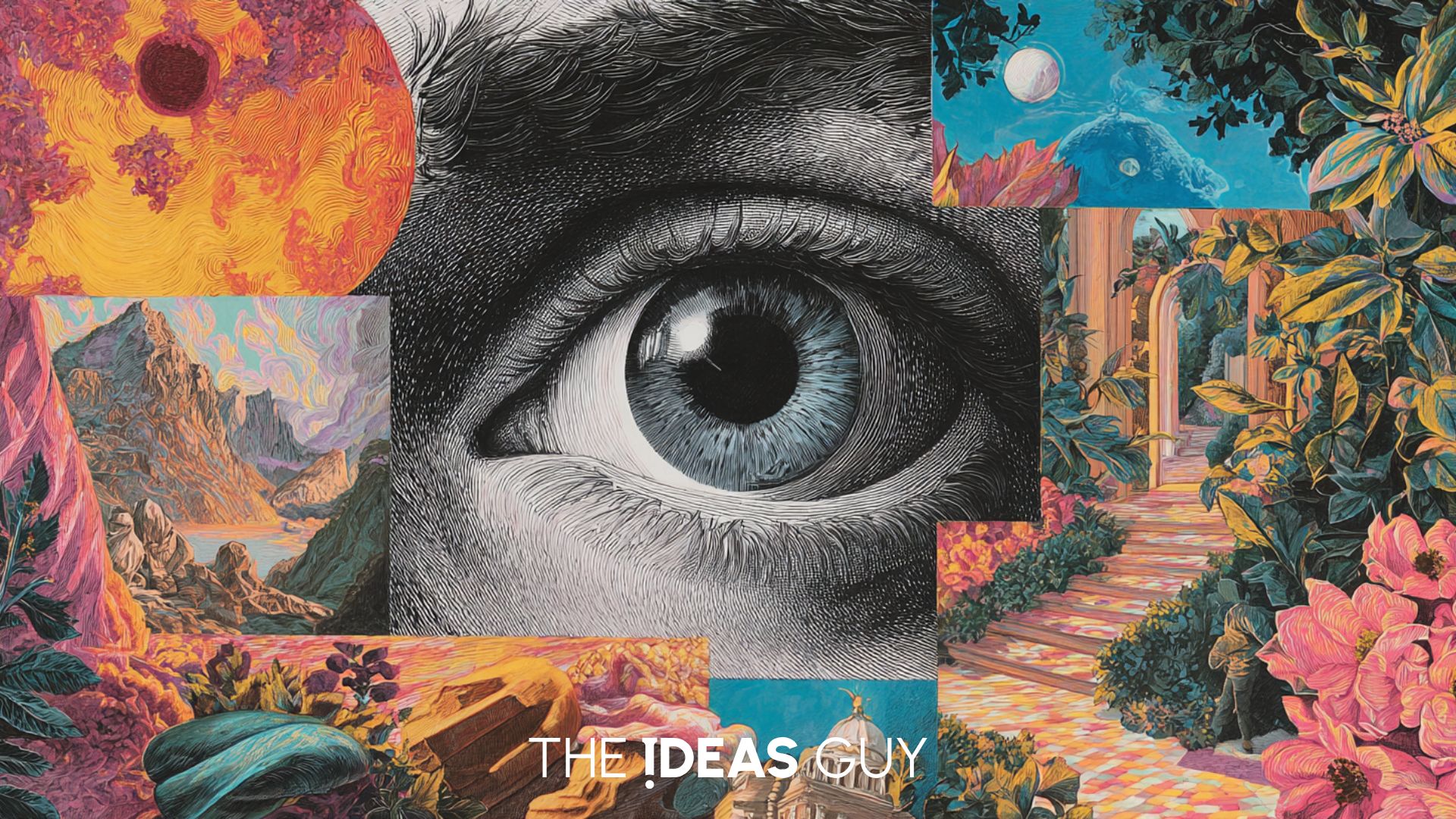
The Discipline of Intellectual Humility
Real expertise includes knowing the boundaries of your expertise. As I have said multiple times before, the philosopher Karl Popper argued that the mark of scientific thinking isn't certainty but falsifiability – the willingness to specify what evidence would prove you wrong.
Most organisational thinking lacks this quality. We become so invested in our solutions that we lose sight of the problems they were meant to solve. We defend our approaches rather than testing them, building elaborate justifications for why things aren't working rather than questioning whether we're doing the right things. Intellectual humility doesn't mean being wishy-washy or lacking conviction. It means holding your views strongly while remaining genuinely curious about alternative possibilities. It means being able to say "I don't know" without losing credibility, and "I was wrong" without losing face.
This becomes particularly important when working across different domains. Educational insights can illuminate business challenges, and business thinking can transform educational practice; but only when we resist the urge to immediately translate everything into familiar terms.
The anthropologist Claude Lévi-Strauss wrote about "the savage mind" – not primitive thinking, but a different way of organising knowledge that privileges concrete relationships over abstract categories. Sometimes the most sophisticated solution is to think like a beginner again.
Beyond Clever
The goal isn't to be interesting; it's to be useful. Thinking differently only matters if it leads to better outcomes for real people in real situations. This requires moving beyond intellectual gymnastics toward practical wisdom.
Aristotle distinguished between three types of knowledge: episteme (theoretical understanding), techne (practical skill), and phronesis (practical wisdom). Most professional development focuses on the first two while neglecting the third. Yet phronesis – the ability to discern the right action in particular circumstances – is what transforms clever thinking into meaningful change.
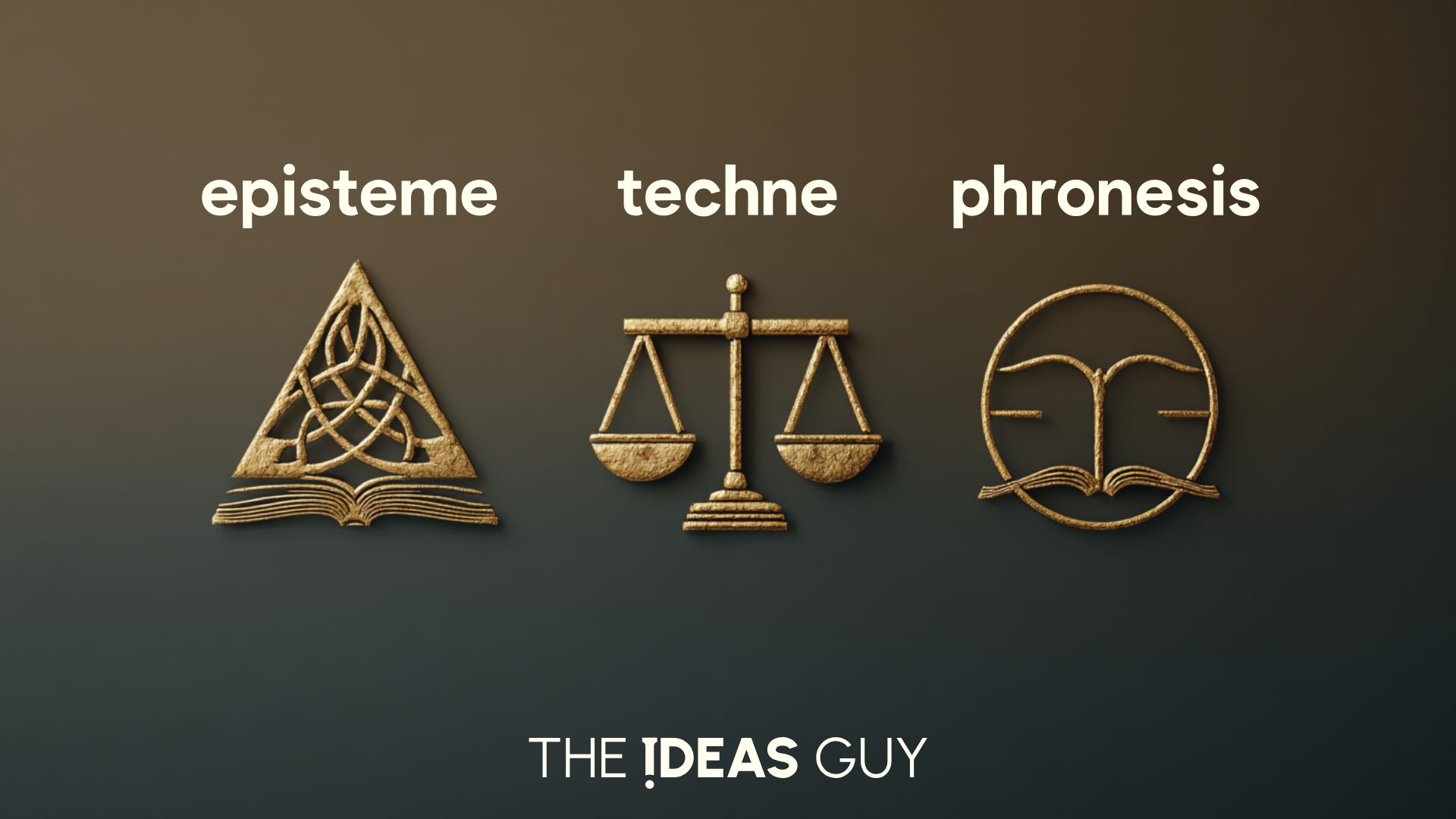
In my experience, the organisations that consistently translate different thinking into better results share certain characteristics. They create space for reflection alongside action. They reward insight, not just execution. They maintain what Shunryu Suzuki called "beginner's mind" – openness to possibility even within familiar territory.
“In the beginner’s mind there are many possibilities, but in the expert’s there are few.” Shunryu Suzuki
They also understand that thinking differently is a collective practice, not an individual talent. The most creative insights often emerge from the intersection of different perspectives, backgrounds, and ways of seeing. They build teams that include people who think unlike each other, and they create processes that help those different ways of thinking enhance rather than cancel each other out.
After twenty years of this work, I've learned that thinking differently isn't about being clever, it's about being useful. It's about helping people see possibilities they couldn't see before, ask questions they weren't asking, and solve problems they didn't know they had.
The techniques matter less than the mindset. Whether it's questioning assumptions, exploring analogies, or adopting unfamiliar perspectives, the key is systematic practice. Most people can think differently occasionally; the competitive advantage comes from doing it consistently.
This requires building intellectual courage – the willingness to be wrong, to look foolish, to venture beyond the safe territory of accepted wisdom. It requires developing what I think of as productive doubt, not cynicism or scepticism, but genuine curiosity about whether there might be better ways of understanding and approaching the challenges we face.
The future belongs to organisations that can think at angles to their problems rather than straight at them. In a world of accelerating change and increasing complexity, the ability to find fresh perspectives on familiar challenges isn't just intellectually satisfying – it's strategically essential.
The question isn't whether you need to think differently. The question is whether you're ready to develop the discipline to do it consistently, and the courage to act on what you discover.
Key Takeaways
- Question the Question: Before solving any problem, interrogate whether you're addressing the right issue. Often, what appears to be the problem is actually a symptom of deeper structural challenges.
- Seek the View from Nowhere: Deliberately adopt perspectives that are foreign to your usual way of thinking. External frameworks often reveal assumptions that insiders can't see.
- Value Peripheral Insights: The most transformative insights often come from the edges of organisations, not the centre. Create channels for these perspectives to reach decision-makers.
- Practice Intellectual Humility: Real expertise includes knowing the boundaries of your expertise. Stay curious about alternative possibilities even when you're confident in your approach.
- Build Collective Intelligence: Thinking differently is most powerful as a team practice. Assemble diverse perspectives and create processes that help them enhance rather than cancel each other out.
- Focus on Impact, Not Cleverness: The goal isn't to be intellectually impressive but to generate better outcomes for real people. Let practical wisdom guide your intellectual adventures.
- Develop Productive Doubt: Cultivate genuine curiosity about whether there might be better ways of understanding the challenges you face. Not cynicism, but openness to possibility.
The next time you're faced with a familiar problem, resist the urge to apply familiar solutions. Step sideways. Ask the uncomfortable questions. Seek the peripheral view. Challenge the assumptions everyone takes for granted. The tangent advantage isn't just about thinking differently; it's about having the courage to act on those different thoughts, even when they lead you away from the well-trodden path. In a time where everyone else is thinking straight ahead, the future belongs to those brave enough to think at angles.
Further Reading
Discover more interesting articles here.
.png)


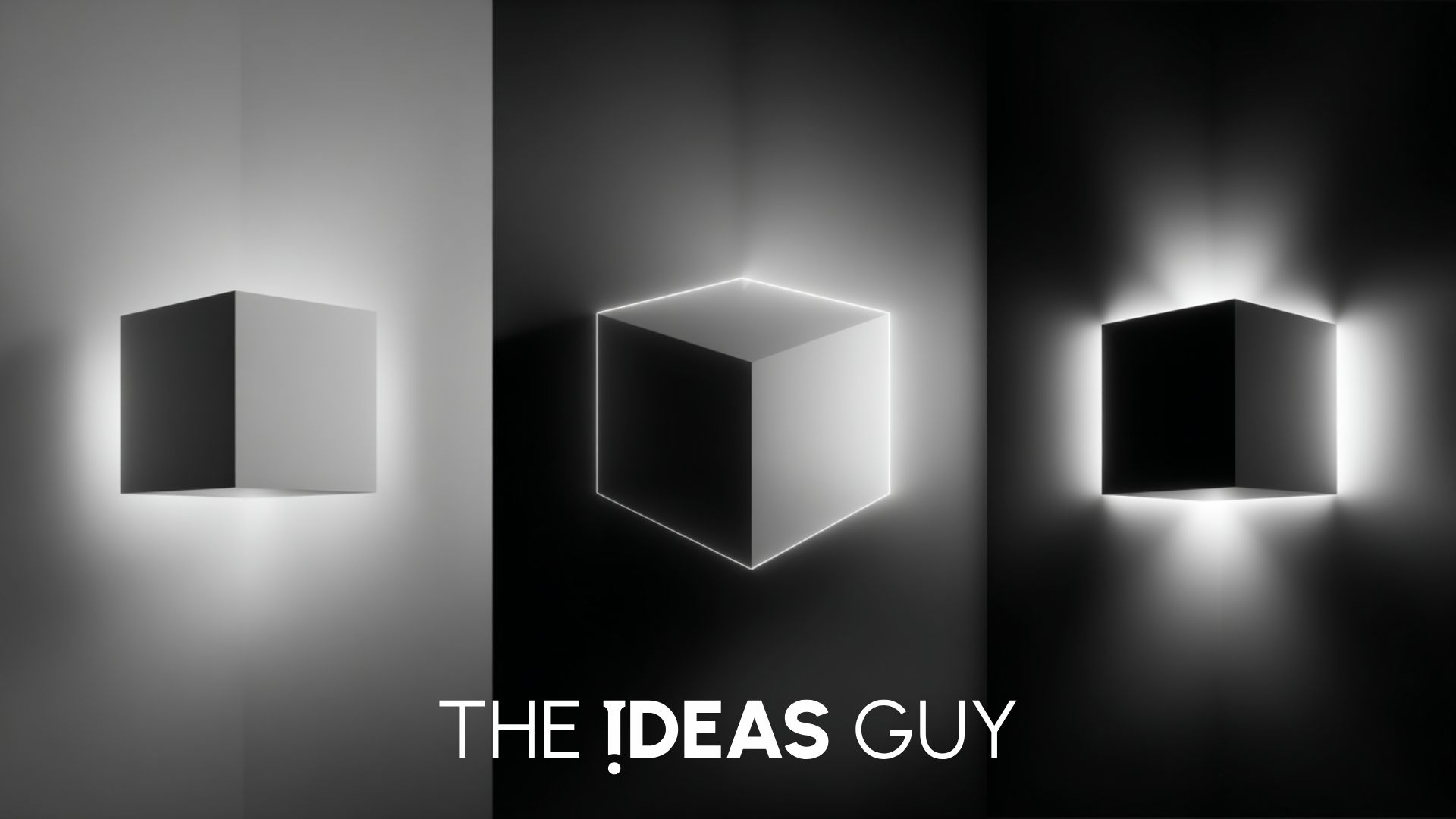
.jpg)